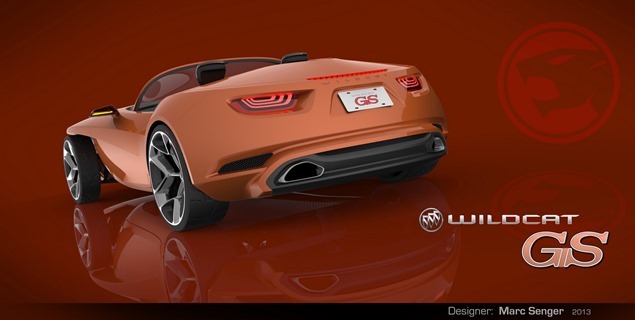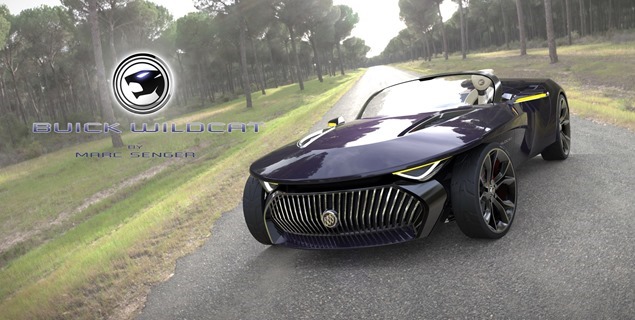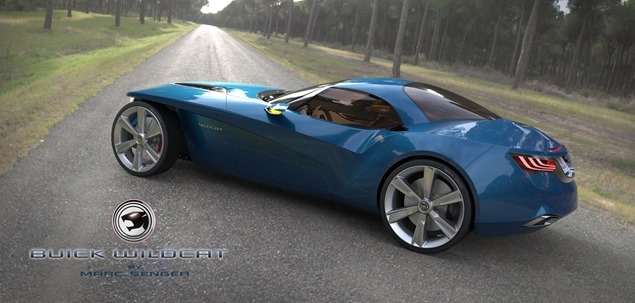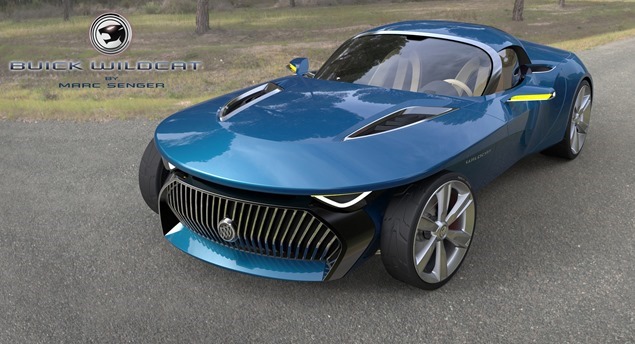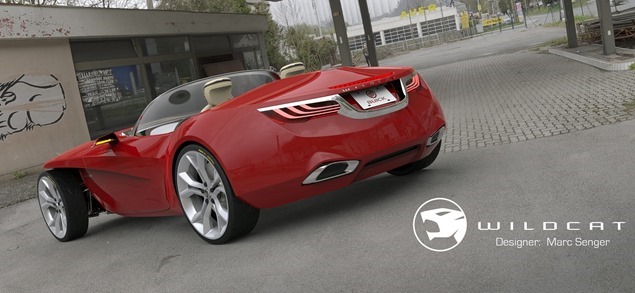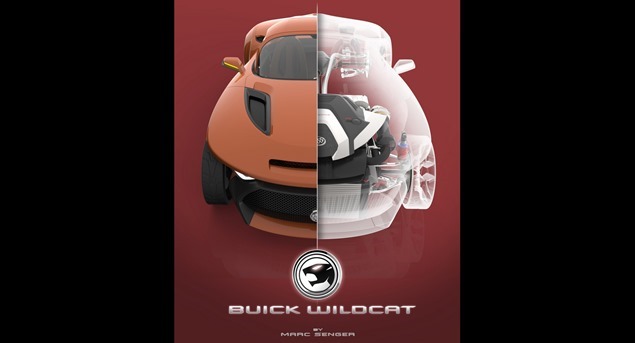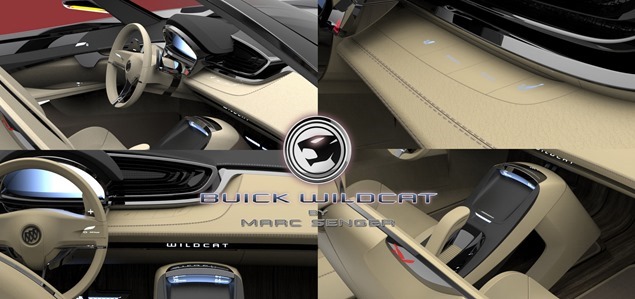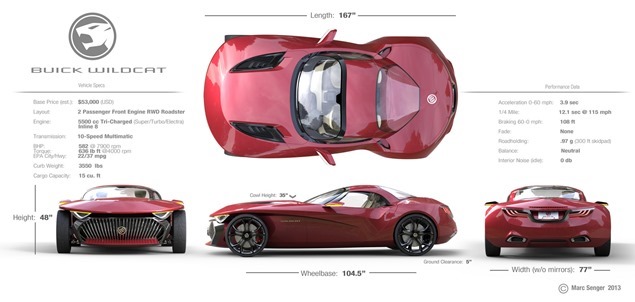
Let's be honest now; the only reason that Buick survived the cut during General Motors' government forced restructuring is the brand's huge success in China, where business is literally booming: Chinese consumers buy around four times as many Buicks as their U.S. counterparts with sales of about 700,000 units in 2012.
In its home market of North America, Buick doesn't enjoy the same affection as it does in China, and its current portfolio of models isn’t exactly helping change perceptions. One independent designer who still believes in the marque is Marc Senger. Not only that, but he also came up with a vision on how to re-ignite passion for Buick.
A Boston-based designer who now works for product development studio Eleven , Senger says he has "never quite escaped the gravitational pull of working in Detroit", which makes him our kind of guy.
Senger sent us his work on the Buick Wildcat design study, which is named after and inspired by Buick's renowned fiberglass-bodied 1954 concept car. It's a two-seater roadster envisioned with a supercharged V8 engine (we gather in its top form) to compete against the likes of the BMW Z4 and Jaguar F-Type.
Below you will find Senger's description of the concept along with a multitude of photos and a nifty video animation. Read through and leave your feedback on the design in the comments that follow.
By John Halas 
[From Marc Senger]
"GM’s 1954 Buick Wildcat II concept is widely considered among the most stunning show cars in GM history. It embodied Buick’s combination of effortless luxury, with a spry underbelly of raw performance worn on its sleeve.
This new Buick Wildcat aims to recapture original designer Harley Earl’s instinctual take on the luxury roadster, with a thoroughly modern bias. It will compete in a segment dominated by European prestige models (BMW Z4, Jaguar F-Type, Audi TT, etc), but will deliver a truly American driving experience. An experience aided by a Buick-specific supercharged V8, spiritual ‘54 cues like open fenders, “floating” headlights, liquid-smooth feedback, and relatively compact proportions. The low, 35-inch high cowl is the sole, yet critical shared dimension between the ’54 car and my own.
One may argue this segment is Cadillac\'s territory to fight, but I feel the Buick brand is in need of an engaging halo-car to redefine what Buick performance could be today: An oxymoronic, Jekyll & Hyde blend of brute force and buttery elegance. If Buick wants to attract a younger segment, this could be an aspirational gateway."

